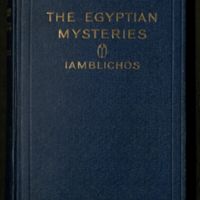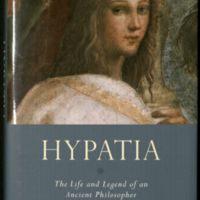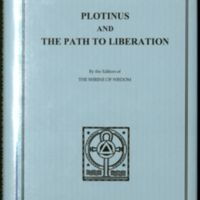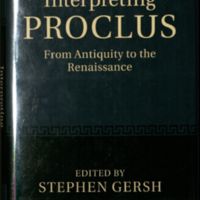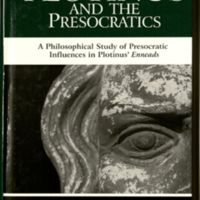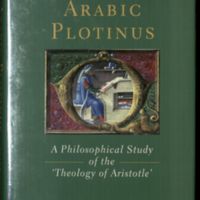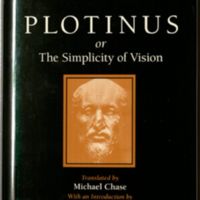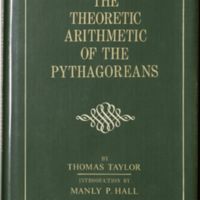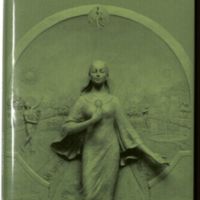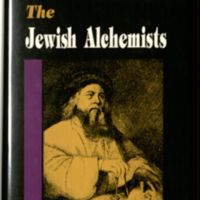The Peter Philp Library of Western
Esotericism and Global Wisdom Traditions
Dublin Core
Title
The Peter Philp Library of Western
Esotericism and Global Wisdom Traditions
Esotericism and Global Wisdom Traditions
Description
The overview paradigm, for The Peter Philp Library of Western Esotericism and Global Wisdom Traditions, was inspired by the 'essential unity of all religions' from Theosophy founder Helena Blavatsky (1831-1891) and Theosophical Society Sanskrit motto 'There is no Religion Higher than Truth'. Philp's view on Western Esotericism is reflected in an essay by the Greek classics, Gnostic scholar and theosophist, G. R. S. Mead (1863-1933). Mead outlined, in his March 1891 essay.* Mead outlines, in his 1891 essay, a broad based overview of the essential perennialism found in the Western Wisdom Traditions, including Greek philosophies of Plato, Pythagorus, pre-Socratics and Noeplatonism, Greek drama, mystery schools, mythology, Gnostic literature and Christian Mysticism, Hermetic philosophy and Alchemy, Jewish Kabbalah, Global Mythology, European folk religions and 'the nature of the soul and states after death'. Mead's view was to complement the study of the translations and promotion of the perennial wisdom from Asia, especially focused on India, which Blavatsky and the Theosophical Society were advocating and spearheading during the 1880's to 90's. Peter Philp, in his decades of perennial wisdom book study and collecting, with his ever growing collection, maintained this theosophic basis as its underlying paradigm and inspiration.
(* "G.R.S.Mead and the Gnostic Quest" p 56)
(* "G.R.S.Mead and the Gnostic Quest" p 56)
Creator
Peter Philp
Kenneth R. Small curator Perennial Wisdom Resources
Kenneth R. Small curator Perennial Wisdom Resources
Publisher
SDSU Library Special Collections
Contributor
Peter Philp
Table Of Contents
Mythology - Global, Greek, Celtic/Druid/Arthurian, Egyptian
Literature - William Butler Yeats writings and studies, William Blake writings and studies (extensive) and others.
Christianity - New Testament Studies, Gnosticism, Mystical Christianity
Sacred Geometry
Buddhism - Theravada, Mahayana and Vajrayana studies and texts
Hinduism - Yoga, tantra and Siva writings.
Islam - Koran and Sufi texts and studies. Writings of Ibn Arabi, Avicenna, Rumi, Hafez etc.
(extensive collection of several hundred volumes)
Taoism
Greek philosophy - Plato, Neo-Platonism, Pythagorean studies (extensive collection of several hundred volumes)
Jewish studies - Kabbalah
Symbolism Studies - the Tarot
Linguistics
Art- Color studies and World Religious Art
Archeology of Stone Monuments
Theosophy - Blavatsky, dePurucker, Subba Row, writings.
W.Y. Evans-Wentz - First editions of his four volumes of Tibetan translations
JRR Tolkien writings and studies
Wizards Bookshelf Secret Doctrine Reference Series - quality reprints of 19th century references to Blavatsky's 'Secret Doctrine'.
Ancient Egyptian Religion, Symbolism and History
Literature - William Butler Yeats writings and studies, William Blake writings and studies (extensive) and others.
Christianity - New Testament Studies, Gnosticism, Mystical Christianity
Sacred Geometry
Buddhism - Theravada, Mahayana and Vajrayana studies and texts
Hinduism - Yoga, tantra and Siva writings.
Islam - Koran and Sufi texts and studies. Writings of Ibn Arabi, Avicenna, Rumi, Hafez etc.
(extensive collection of several hundred volumes)
Taoism
Greek philosophy - Plato, Neo-Platonism, Pythagorean studies (extensive collection of several hundred volumes)
Jewish studies - Kabbalah
Symbolism Studies - the Tarot
Linguistics
Art- Color studies and World Religious Art
Archeology of Stone Monuments
Theosophy - Blavatsky, dePurucker, Subba Row, writings.
W.Y. Evans-Wentz - First editions of his four volumes of Tibetan translations
JRR Tolkien writings and studies
Wizards Bookshelf Secret Doctrine Reference Series - quality reprints of 19th century references to Blavatsky's 'Secret Doctrine'.
Ancient Egyptian Religion, Symbolism and History
Date Available
2020
Collection Items
Hypatia: The Life and Legend of an Ancient Philosopher
A philosopher, mathematician, and martyr, Hypatia is one of antiquity's best-known female intellectuals. For the sixteen centuries following her murder by a mob of Christians Hypatia has been remembered in books, poems, plays, paintings, and films as…
Plotinus and the Presocratics: a philosophical study of presocratic influences in Plotinus' Enneads
"Filling the void in the current scholarship, Giannis Stamatellos provides the first book-length study of the Presocratic influences in Plotinus' Enneads. Widely regarded as the founder of Neoplatonism, Plotinus (204-270 AD) assimilated eight…
The Arabic Plotinus: a philosophical study of the theology of Aristotle
"The Arabic Plotinus was the most important source for Neoplatonic ideas in the Arabic world. Falsely attributed to Aristotle and known as the 'Theology of Aristotle', the Arabic version of Plotinus' Enneads was influential on Muslim philosophers…
Plotinus, or, The Simplicity of Vision
"The Roman philosopher Plotinus (c. 205-70) is perhaps best known today for his doctrine of self-transformation through contemplation: "Never stop sculpting your own statue, until the godlike splendor of virtue shines forth to you." Since its…
The Jewish Alchemists: a History and Source Book
In this monumental work, Raphael Patai, acclaimed author of Hebrew Myths (with Robert Graves) and The Hebrew Goddess, opens up an entirely new field in cultural history by tracing Jewish alchemy from antiquity to the nineteenth century. Until now…

